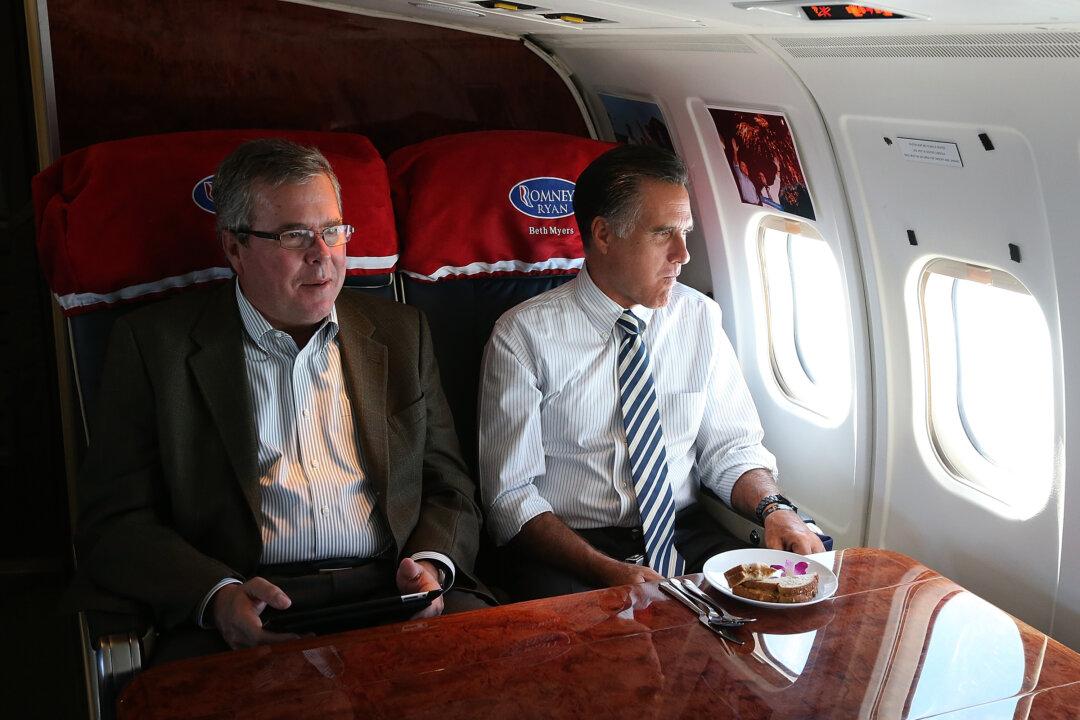Mitt Romney and Jeb Bush, considered the leading candidates in the Republican presidential primary, reportedly met in Utah on Thursday, sparking speculations of a possible joint-ticket in the 2016 election.
In a CBS poll from January, the 2012 Republican presidential nominee and the ex-Florida governor were the most popular candidates among likely Republican primary voters, and although neither have formally announced their candidacies, both have expressed strong interest in entering the race.
Bush formed a presidential exploratory committee back in December, and last week Romney delivered the outline of a populist campaign platform at a winter meeting of the Republican National Committee.
Some observers see the meeting not as an exploration of a joint-candidacy, but a negotiation for one of them to take a step back in the race.
“The prospect of a Bush-Romney ticket seems very unlikely, if only because they duplicate so many of each other’s strengths and vulnerabilities,” said Dan Schnur, a former Republican strategist who worked on John McCain’s 2000 presidential campaign.





